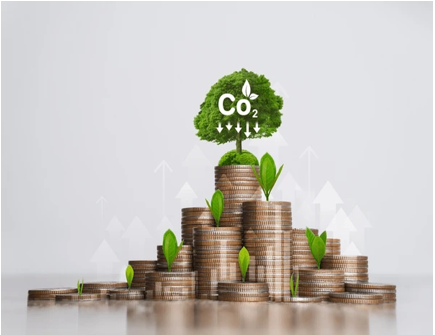i INP-WEALTHPK
Ayesha Saba
Pakistan is collaborating with a wide range of international organizations, development partners, and private stakeholders to establish a national carbon trading framework, which will not only strengthen its climate governance but also monetize climate actions.

In an exclusive interview with Wealth Pakistan, Muhammad Saleem Shaikh, Climate Analyst at the Ministry of Climate Change and Environmental Coordination, said the initiative is driven by the Paris Agreement's Article 6, which allows countries to trade carbon credits to meet their climate goals. For Pakistan, a nation with historically low carbon emissions, this represents a significant economic opportunity by monetizing its climate actions.
“The foundational work is underway. We are collaborating with International Non-Governmental Organizations (INGOs) and a wide array of stakeholders to build a robust carbon governance system," the expert said. The country sees vast potential in developing carbon markets linked to key sectors such as energy, forestry, and construction.
A key partner in this endeavour is China, which has emerged as a global leader in carbon market mechanisms. "China possesses immense expertise and operational experience, particularly in the carbon trading sectors of energy and transport," Saleem noted. He believed this cooperation would accelerate domestic readiness by sharing best practices, regulatory tools, and technical expertise.
With the right mix of policy reforms, technical support, and regional cooperation, particularly with China, Pakistan hopes to position itself as a credible participant in the global carbon trading system while advancing its commitments under the Paris Agreement.
Recently, Pakistan has undertaken several nature-based initiatives aligned with carbon sequestration goals, including planting 14 million trees in mangrove forests, which contributes to both biodiversity conservation and potential carbon credit generation. However, the path to a functional carbon market is not without hurdles. The official pointed to significant "regulatory gaps" and capacity-related challenges within Pakistan's current system.
“Lack of awareness, limited institutional capacity, and insufficient technical expertise are among the key barriers to developing a functional carbon trading system. Without structured carbon governance and policy clarity, private and international investors remain hesitant,” the expert said.
“We are now intensifying efforts to bring all potential stakeholders to the table to identify these gaps and collaboratively devise solutions. The overarching goal is to create a transparent and effective carbon trading mechanism that not only contributes to global climate efforts but also drives sustainable development and attracts green investment into Pakistan's economy,” he said.
Credit: INP-WealthPk








